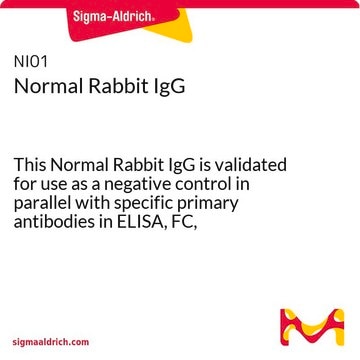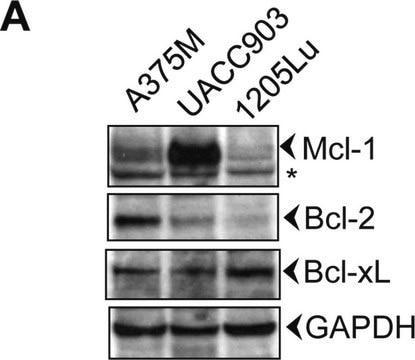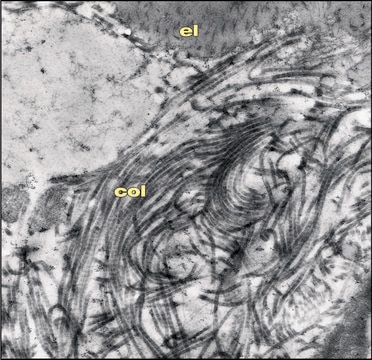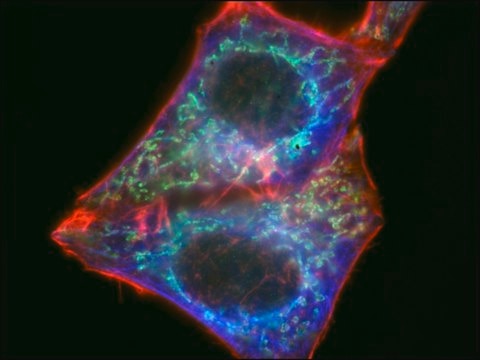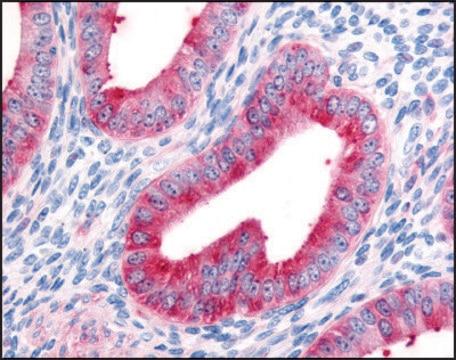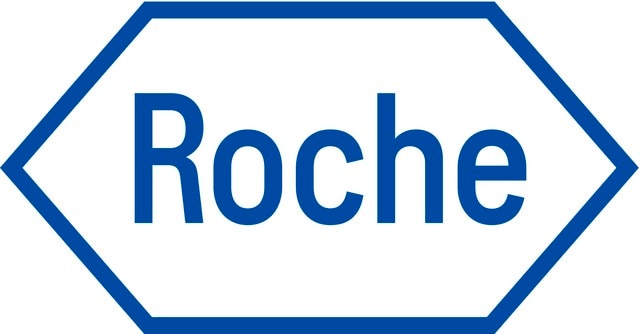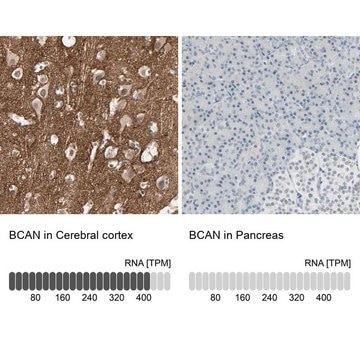MABN491
Anti-Brevican Antibody, clone N294A/6
clone N294A/6, from mouse
Synonym(s):
Brevican core protein, Brain-enriched hyaluronan-binding protein, BEHAB, Brevican
About This Item
Recommended Products
biological source
mouse
Quality Level
antibody form
purified antibody
antibody product type
primary antibodies
clone
N294A/6, monoclonal
species reactivity
rat, human
technique(s)
immunohistochemistry: suitable
western blot: suitable
isotype
IgG2bκ
NCBI accession no.
UniProt accession no.
shipped in
wet ice
target post-translational modification
unmodified
Gene Information
human ... BCAN(63827)
General description
Immunogen
Application
Neuroscience
Developmental Neuroscience
Immunohistochemistry Analysis: A 1:500 dilution from a representative lot detected Brevican in rat midbrain, rat thalamus, and rat cerebellum tissues.
Western Blot Analysis: A representative lot detected Brevican in rat brain tissue lysate and in WT, but not in Brevican knockout mouse brain tissue lysate.
Quality
Western Blot Analysis: 2 µg/mL of this antibody detected Brevican in 10 µg of rat brain tissue lysate.
Target description
Physical form
Storage and Stability
Analysis Note
Rat brain tissue lysate
Other Notes
Disclaimer
Not finding the right product?
Try our Product Selector Tool.
wgk_germany
WGK 1
flash_point_f
Not applicable
flash_point_c
Not applicable
Certificates of Analysis (COA)
Search for Certificates of Analysis (COA) by entering the products Lot/Batch Number. Lot and Batch Numbers can be found on a product’s label following the words ‘Lot’ or ‘Batch’.
Already Own This Product?
Find documentation for the products that you have recently purchased in the Document Library.
Our team of scientists has experience in all areas of research including Life Science, Material Science, Chemical Synthesis, Chromatography, Analytical and many others.
Contact Technical Service